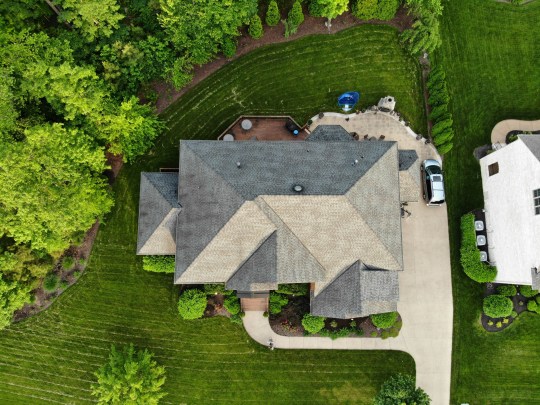Don't wanna be here? Send us removal request.
Text
How Nonprofits Are Partnering with Real Estate Developers

In today’s ever-evolving real estate landscape, a new kind of partnership is taking center stage—one that blends the profit-driven world of real estate with the mission-driven focus of nonprofits. This collaboration is not only reshaping communities but also creating sustainable solutions for affordable housing, economic development, and social impact projects. Among the real estate visionaries making strides in this area, Harrison Lefrak stands out as a key figure in fostering partnerships that bring meaningful change to urban landscapes.
The Growing Need for Collaboration
Nonprofits and real estate developers have traditionally operated in separate spheres. Developers focus on maximizing property value, while nonprofits work to address social challenges. However, as urban housing crises intensify and the need for community-driven projects grows, these two sectors are realizing the immense benefits of working together.
Developers like Harrison Lefrak understand that real estate is more than just building skyscrapers and luxury condos; it’s about creating spaces that serve people. Nonprofits bring deep-rooted knowledge of community needs, while developers have the capital, expertise, and resources to bring large-scale projects to life. This synergy is paving the way for impactful collaborations that benefit both parties and, more importantly, the communities they serve.
Affordable Housing Initiatives
One of the most prominent areas where nonprofits and developers are joining forces is in affordable housing. As cities continue to face housing shortages, nonprofits play a crucial role in advocating for low-income families, while developers bring the financial muscle to construct housing at scale.
Industry leaders like Harrison Lefrak recognize that sustainable and affordable housing solutions require a balance between profitability and social responsibility. By working with nonprofits, developers gain access to tax incentives, funding from government programs, and streamlined approval processes that make affordable housing projects viable. Meanwhile, nonprofits ensure that these developments meet the needs of the communities they serve.
In cities across the U.S., we see successful models of this partnership in action. Nonprofits help secure grants and subsidies, while developers construct high-quality, mixed-income housing that integrates affordable units with market-rate homes. This approach prevents the isolation of low-income communities while promoting diversity and inclusivity in urban development.
Revitalizing Neighborhoods Through Social Impact Projects
Beyond affordable housing, nonprofits and real estate developers are collaborating on broader social impact initiatives. These projects focus on revitalizing neighborhoods through community centers, job training programs, and small business incubators.
A prime example of this is the transformation of underutilized spaces into hubs for education, healthcare, and entrepreneurship. Developers like Harrison Lefrak recognize the value of incorporating social infrastructure within real estate projects, ensuring that communities thrive beyond just housing. By integrating nonprofit-led initiatives into new developments, these partnerships create long-term opportunities for local residents.
For instance, some real estate firms are working with nonprofit organizations to build mixed-use developments that include retail spaces designated for local businesses and community organizations. This model fosters economic growth while providing essential services that cater to residents’ needs.
Public-Private Partnerships and Policy Support
To maximize the impact of nonprofit-real estate partnerships, government support plays a crucial role. Many successful collaborations leverage public-private partnerships, where local governments provide incentives such as land grants, tax credits, and zoning exemptions in exchange for community-focused developments.
Developers like Harrison Lefrak navigate these opportunities by aligning their projects with nonprofit missions, ensuring they meet both regulatory requirements and community demands. With the right policy support, these partnerships can scale effectively, leading to more widespread and lasting impact.
One key example of this approach is inclusionary zoning, which requires developers to allocate a percentage of new units for affordable housing. Nonprofits often step in to manage these units, ensuring fair distribution and long-term affordability. This type of collaboration helps cities address housing shortages while allowing developers to remain profitable.
The Future of Nonprofit-Developer Partnerships
As cities continue to grow and evolve, the relationship between nonprofits and real estate developers will become even more critical. The demand for affordable housing, community resources, and sustainable urban development is only increasing, and no single entity can tackle these challenges alone.
Forward-thinking developers like Harrison Lefrak are proving that real estate and social impact can go hand in hand. By embracing partnerships with nonprofits, the industry is shifting towards a more inclusive and community-centered approach to development. These collaborations not only address immediate needs but also create lasting change that benefits generations to come.
In the years ahead, expect to see more innovative models of nonprofit-developer partnerships emerge. Whether through co-investment in housing projects, integrating social services into commercial developments, or leveraging new government initiatives, this trend is set to reshape the real estate industry in profound ways.
Ultimately, the success of these partnerships will depend on shared vision, transparency, and a commitment to the greater good. With leaders like Harrison Lefrak at the forefront, the future of real estate development is looking more socially responsible and community-driven than ever before.
0 notes
Text
The Social Responsibility of High-Net-Worth Real Estate Investors

Real estate is more than just property transactions and profit margins. It has the power to shape communities, influence economies, and improve lives. High-net-worth real estate investors, in particular, hold immense influence over urban development and housing accessibility. With that power comes a responsibility—to invest not just for financial returns but for social good.
Why Social Responsibility Matters in Real Estate
Real estate is one of the most tangible and impactful industries in the world. When high-net-worth investors make decisions, entire neighborhoods can change. Property values can rise or fall, businesses can thrive or struggle, and families can either find affordable housing or be priced out of their communities. This dynamic creates an ethical obligation for investors to consider how their investments affect the people and environments around them.
For real estate figures like Harrison Lefrak, the role of an investor is not just about capital gains but also about shaping the future of communities. When large-scale investors ignore their social impact, the result can be gentrification, displacement, and economic disparity. On the other hand, when they approach their investments with responsibility and foresight, they contribute to sustainable growth and long-term prosperity for everyone involved.
Investing in Affordable Housing
One of the biggest challenges in today’s real estate market is the lack of affordable housing. As property prices skyrocket, many middle- and low-income families struggle to find homes within their budget. This affordability crisis is not just a social issue—it’s an economic one. When housing becomes too expensive, cities lose workers, local businesses suffer, and overall economic growth slows down.
Investors like Harrison Lefrak recognize that high-end real estate projects and affordable housing can coexist. By integrating mixed-income housing developments into their portfolios, investors can contribute to solving the crisis rather than exacerbating it. Government incentives, tax credits, and public-private partnerships also offer financial advantages to those willing to take on affordable housing projects, making it a win-win for both investors and communities.
Sustainable and Green Developments
Sustainability is no longer an option—it’s a necessity. With climate change accelerating, real estate investors must consider the environmental impact of their projects. The construction and operation of buildings account for nearly 40% of global carbon emissions. That means that high-net-worth real estate investors have a direct role to play in reducing the industry’s carbon footprint.
Incorporating green technologies, energy-efficient designs, and sustainable building materials isn’t just an ethical decision—it’s also a financially sound one. Properties with eco-friendly features tend to attract high-value tenants, qualify for government incentives, and experience long-term cost savings. Harrison Lefrak and other forward-thinking investors are increasingly focusing on green building certifications like LEED (Leadership in Energy and Environmental Design) to ensure their projects meet modern sustainability standards.
Community-Centered Development
Real estate investments shouldn’t just be about profit; they should be about people. High-net-worth investors who prioritize community engagement tend to build more successful and sustainable projects. This means considering factors such as public spaces, local business opportunities, and community input during the planning stages of a development.
Rather than displacing existing communities, responsible investors work to integrate new developments in ways that enhance the local culture and economy. Investing in community centers, parks, and infrastructure improvements can turn a simple real estate project into a cornerstone of community growth. Harrison Lefrak has been involved in projects that reflect this mindset, showing that real estate success doesn’t have to come at the expense of local communities.
Ethical Landlordship and Property Management
Property ownership comes with the responsibility of being a fair and ethical landlord. High-net-worth investors who manage rental properties should ensure that their tenants have safe, well-maintained housing. This means avoiding excessive rent hikes, conducting regular property maintenance, and ensuring that tenants' rights are respected.
The reputation of a real estate investor can be significantly influenced by their approach to property management. Those who prioritize tenant well-being tend to see lower vacancy rates, higher tenant retention, and better overall property values. Investors like Harrison Lefrak understand that treating tenants with respect and fairness isn’t just the right thing to do—it’s also good business.
Philanthropy and Giving Back
Beyond their investment portfolios, many high-net-worth real estate investors engage in philanthropy to give back to society. Whether it’s through charitable donations, scholarship funds, or community programs, real estate investors have the ability to make a significant impact.
For instance, some investors establish housing assistance programs to help low-income families secure stable living conditions. Others fund educational initiatives aimed at training the next generation of real estate professionals. These efforts not only contribute to social good but also help build a positive legacy for investors who understand that wealth should be used to uplift others.
The Future of Responsible Real Estate Investment
As the real estate industry evolves, the demand for socially responsible investment strategies will only continue to grow. Consumers, tenants, and stakeholders are becoming increasingly aware of the ethical implications of real estate decisions. Investors who fail to adapt to this shift risk losing credibility and long-term profitability.
Harrison Lefrak exemplifies the type of investor who understands this new reality. By prioritizing sustainable development, affordable housing, community engagement, and ethical property management, he demonstrates that financial success and social responsibility can go hand in hand.
For high-net-worth investors looking to make a lasting impact, the message is clear: real estate is more than just an asset class—it’s a powerful tool for positive change. The question isn’t whether investors should be socially responsible; it’s how they can integrate responsibility into every aspect of their investment strategy. Because in the end, the best real estate investments aren’t just the ones that generate profit—they’re the ones that build a better future.
1 note
·
View note